PLANET OF THE APES (2001)
The Planet of the Apes Retrospective
Stop This Planet of the Apes I Want to Get Off!...
I remember going to see the remake of
Planet of the Apes. The theater was sold-out. It was going to be a BIG movie. The audience was excited to see this BIG movie (and I suspect to most of the audience, an original film). Before the movie began, I saw two guys actually get into a fist-fight over seats. Both argued that they had arrived at what I figure is prime seating (middle of the midsection of the theater), with their girlfriends "saving" their seats. Neither would budge, so they settled it by throwing a few punches at each other. The rest of the audience was stunned by this reaction, and both groups were ushered out of the theater.
I tell this story not just because this was the first (and so far, last) time I've ever witnessed such a sorry spectacle, but because the fist-fight was more interesting and entertaining that
Planet of the Apes, one of biggest disasters of 2001.
Captain Leo Davidson (Mark Wahlberg) is an astronaut deep in space. On his ship, he is training a chimp, Pericles, to fly a pod so that the chimp can fly into a space storm rather than send a human (much to Leo's displeasure). Pericles does so, and gets drawn into the storm. Leo gets into a pod himself, to as he put it, "goin' to get my chimp". Into this storm Leo flies, while the crew of the space station watch in horror as they start losing power and receiving a strange Mayday call but not from Leo.
Leo flies through the storm and straight onto a mysterious planet that vaguely resembles Dagobah from
The Empire Strikes Back. He's not there five minutes when he finds himself being chased along with a group of cavemen-looking humans. Leo quickly finds he's being chased by apes, led by the ruthless General Thade (Tim Roth) and his right-hand gorilla, Attar (Michael Clark Duncan). Leo, along with a family comprising a man (Kris Kristofferson), a beautiful woman (Estella Warren), a young man (Luke Eberl), and an adorable little girl, are all captured and taken to the Ape City.
There, Leo finds a world filled with more apes, and the human trader Limbo (Paul Giamatti), an orangutan, starts branding and selling the new captures. One chimp, Ari (Helena Bonham Carter), a human rights activist (?) gets in his way and buys Leo and the woman. She is the daughter of Senator Sander (David Warner), whom Thade covets. Leo, with the help of the woman and another human slave (Erick Avari), escape with the help of Ari and her friend Krull (seriously...Krull?) (Cary-Hiroyuki Tagawa).
Thade and Attar begin a pursuit of this human, and Leo and his entourage (pun intended) head for the sacred but forbidden city of Calima where Leo's instruments tell him his friends are at. With him are the other slave, another slave (Evan Dexter Parke), the woman, the boy, Ari, Krull (!), and Limbo (taken against his will). In Calima Leo makes a shocking discovery: Calima (which he discovers stands for
CAution
LIve ani
MAls) the remains of his crashed space station. It appears that while looking for him the
Oberon itself crashed on this uninhabited planet, and the apes are the descendants of the monkeys they had brought with him.
After getting over the shock, Leo reluctantly takes on the mantle of leader of the humans, who have flocked to Calima to see the human who defies the apes. After the final battle (which is stopped by would you believe, Pericles?) apes and humans will try to live together in peace. However, Leo wishes to go back to his home, so he boards Pericles' pod and flies off. He gets back to a planet that looks like Earth, only to find one the dumbest and most illogical endings in film history.
Planet of the Apes is such a fiasco, such a misfire, that it boggles the mind that the director is Tim Burton and that it took
three people to write this nonsense (William Broyles, Jr., Laurence Konnar, and Mark Rosenthal). Both the direction and the screenplay make
Planet of the Apes such a mess that one can either watch in stunned disbelief, in irritation, or in sheer laughter that so much time and effort was spent on trying to make a bad film even worse.
I think that the chief problem for
Planet of the Apes (and that is saying much) is that it couldn't decide whether it was allegory or action. You could have a movie where having humans as slaves, where apes question whether humans have souls, serves as commentary about how humans see each other. You could have a movie where a battle between humans and apes for control of the planet (a
Battle for Planet of the Apes, perhaps) be filled with great battle scenes. What you
can't have is one where you try for one, then drop it without reason.
The human factor actually is what makes
Planet of the Apes more muddled. On this unnamed planet, humans are able to speak just as well as apes. Furthermore, the apes are fully aware that humans are able to speak just as well as they can. Therefore, you can't logically have humans be animals because animals can't speak. However, you have ape children demanding human children as pets. As a result, you have a wild inconsistency in how humans are to be seen: are they animals or merely victims of ape bigotry? You cannot have it both ways, but the film is trying to.
By focusing so much attention on 'action', we get no chance for character development. Right after Leo crashes onto this planet we see this is a planet of apes, so there is no suspense about how
talking humans (emphasis mine) got to be dominated by talking apes. We jump from one action scene to another without any time to stop to know the characters man or beast.
I digress to point out that
Planet of the Apes also made a disastrous decision to have the dominant society "ape" present-day society. Maybe Burton and the writers thought they were being clever, but they only ended up making the film unintentionally funny. Seeing ape children play basketball isn't clever (but it did make one wonder how the apes found time to play games or where the simian version of Dr. Naismith emerged from). There were also moment in
Planet of the Apes that were downright painful, almost creepy, in the film's efforts to mirror our times. When the humans were making their escape, we are treated to a scene of an old orangutan being entertained by his much-younger wife. Not only was it an ugly scene to behold, but it did make it look like something out of
Howard the Duck to where all the scenes of apes doing 'human' things passed into parody.
Perhaps you may have noticed in my review that I gave names to only the apes and Wahlberg's character. Now, all the human characters
have names, but why bother giving them when I don't think they were used by anyone? We never got to know any of them as individuals, what they desired or what they thought. Take Kristofferson's character. He shows up when the apes are chasing the humans, he is separated from his daughters, rescued, and then killed by Thade as the humans make their escape. We never got to know him, we never got to sympathize with him, we never knew anything about him--and by killing him off so quickly, we never would.
Same goes for the "house human" (the slave in Ari's home who runs away with them: and I should add I feel uncomfortable with the phrase 'house human' given the connotation to the phrase 'house negro' and am puzzled as to how the three screenwriters would think it was a wise decision to use that phrase). He appeared to be totally fearful of his ape masters, so why did he all of a sudden decide to run away with this group? Even worse, he really had nothing to do: he wasn't rallying other humans to Leo's cause, he wasn't thinking about going back to the security of slavery, he was just...there.
This idea that the characters are just there, with really nothing to do, is reflected in all the performances. As impossible as it may sound, I have discovered through
Planet of the Apes that it is possible to wildly overact while in complete ape make-up. Both Roth and Giamatti were so over-the-top in the film one wonders if they had any direction at all. Roth's character was a disaster: always raging but never providing a reason as to why he had this utter hatred for humans. Even when he was attempting to 'romance' Ari, it was with such anger it looked like he didn't want to be there. Giamatti's orangutan was I figure the comic relief, but nothing he said was either funny or clever, just annoying. Having him ask the humans, "Can't we all just get along?" does not help. It's neither witty or good, but cringe-inducing.
Let's move on to the star of
Planet of the Apes. For years people have been trying to convince me that Mark Wahlberg is some extraordinary actor, up there will Colin Farrell or James McAvoy, that he is this icon of cinema. Here, there is no proof he can think, let alone act. Throughout
Planet of the Apes his facial expression doesn't change: he has this perpetually stunned look in every scene, and his delivery is either rushed or bored. He is flat and uninteresting and uncharismatic and dull. The entire motivation for Leo to fly out of the ship is to go after his monkey, but in their first scenes Wahlberg never shows that he even likes his monkey, let alone cares for it so much that he's willing to risk his life for him.
Planet of the Apes played to all the worst aspects of Wahlberg as a star (I can't say actor since he wasn't acting here): one expression and stilted line delivery.
In short Marky Mark, it's a bad sign when you are out-acted by a chimpanzee.
As much as is my policy to not compare remakes (or re-imaginings) to
the original,
Planet of the Apes is goading me to when you have characters say lines like "Take your stinkin'
hands off my, you damn dirty human" (Attar, emphasis mine) or "Damn them (humans), damn them all to hell" (Charlton Heston in a cameo as Thade's father).
I digress to point out his appearance in
Planet of the Apes brought to mind something Joan Crawford's daughter Christina said about her in the documentary
Joan Crawford: The Ultimate Movie Star. She said that she didn't know if
Trog was Crawford's last film, but if it wasn't it should have been. According to
IMDB it wasn't Heston's last film, but it should have been: a lousy ending to a brilliant career.
For those who've never seen the original, the references won't make any sense. For those who have, it just reminds us of a better film.
Speaking of things that don't make any sense, let's get into the actual story. Now, if we are to believe the story the humans on Planet X are the descendants of Leo's fellow crewmen. This means that while they were stranded on this planet, there was a lot of mating going on. We really don't know how much time separates the crashing of the
Oberon and Leo's arrival, but it does make one wonder how the first being to leave (Pericles) is the last to arrive (and arrive, I might add, at the most opportune time). This is the scenario we're presented: according to the video archives the planet was uninhabited, so therefore the apes are Pericles' fellow chimps (note: we only saw chimps on the
Oberon, so unless the gorillas were off-screen we don't know how they got there) and they must have bred just like the crew of the
Oberon bred with each other.
How the monkeys got to where they could overpower the humans we know not either because as idiotic as it may sound, this point of logic is irrelevant to
Planet of the Apes. How it became a
Planet of the Apes is not important to
Planet of the Apes. Ponder that for a moment.
Now, let me move on to the ending of
Planet of the Apes. It was a mess, a disaster, a fiasco, and one of the most illogical and idiotic conclusion of all time. Those who've never seen the original would not know that it had one of the greatest twist endings in film history, and moreover, one that was logical (making it even more horrifying and shocking). My thinking is that Burton, Wahlberg, and Company decided they were going to try to top the original ending (and maybe leave the door open for a sequel).
However:
THE. ENDING. MAKES. NO. SENSE. Not only is it stupid, but it is a shameless cheat. I normally avoid spoilers or give warnings, but in this case, I'll make an exception.
The ending is this: Leo leaves a peaceful Planet of the Apes, crashes onto a planet that looks like Earth (complete with North and South America), and crashes at what appears to be the Lincoln Memorial. When he walks up to the monument, Wahlberg (with his typically stunned look on his face) looks upon Lincoln to see...General Thade. In short, he
Escaped from Planet of the Apes only to crash onto
ANOTHER Planet of the Apes!
Just as I remember the fist-fight pre-
Planet of the Apes, I vividly recall the reaction to the conclusion in the theater. Never before had I heard an audience react with just anger, such fury, yelling all sorts of things at the screen. Among the kinder things I heard was "COME ON!" "BOO!" "YOU'RE KIDDING!" The entire audience was in an uproar over this. It WAS a cheat, it WAS a clumsy and shameless effort to get a sequel in, and
IT. JUST. DIDN'T. MAKE. ANY. SENSE. What part of that did intelligent people (and Marky Mark)
not understand?
I had never seen or heard an audience so infuriated by anything on the screen. My experience had/has been that audiences today let whatever is on the screen wash over them. Audiences have become extremely passive to what they wash, but this, THIS, was just one step too far for them. Even if the movie had been good (and it wasn't) having such a ridiculous ending that made no sense would have killed it. The fact that this nonsensical ending (a bungled effort to make it more shocking) was the coda to a poor movie only made things worse.
When I left the theater, I heard the reaction of the audience. It was one of anger and frustration. The feeling was one of getting ripped off, of being sold a good action/adventure and getting a hopeless jumble where nothing made sense (even it the world it occupied) and where everything (save Rick Baker's brilliant make-up work) was just awful: acting, story, directing, even the sets (I kept wondering why the first two thirds of the film took place within this dark jungle while the third took place in a desert, the transition from near-dark and damp to light was a bit too much to take).
To the credit of audiences everywhere,
Planet of the Apes, while financially successful (no doubt thanks to massive publicity building it as an 'event' film) was immediately rejected by the public. Any hopes for a sequel died the moment Marky Mark looked upon the "new Lincoln". In a moment of rare clarity in Hollywood, the producers and studios decided that, even though it made a lot of money, they weren't going to try to make a sequel. It would have been interesting though, to see if they could truly make a film that was
beneath even
this Planet of the Apes.
DECISION: F
2001 vs. 1968 Planet of the Apes: A Comparison
Next Planet of the Apes Film: Rise of Planet of the Apes
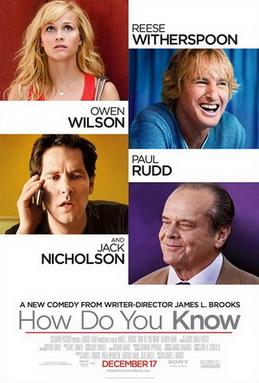 HOW DO YOU KNOW
HOW DO YOU KNOW

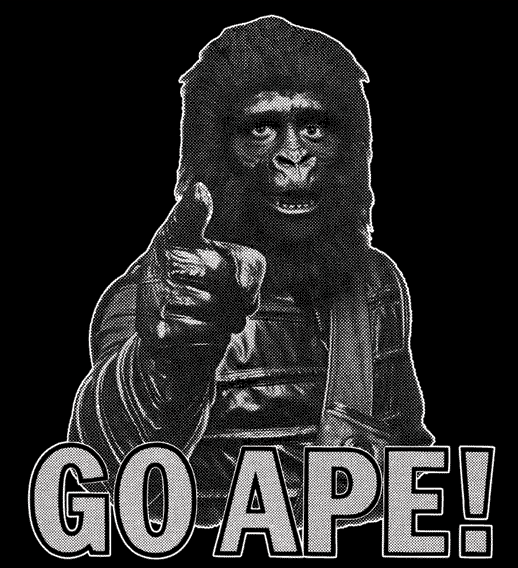
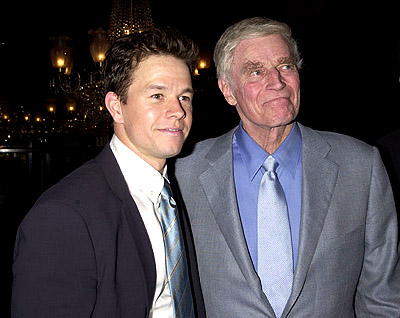
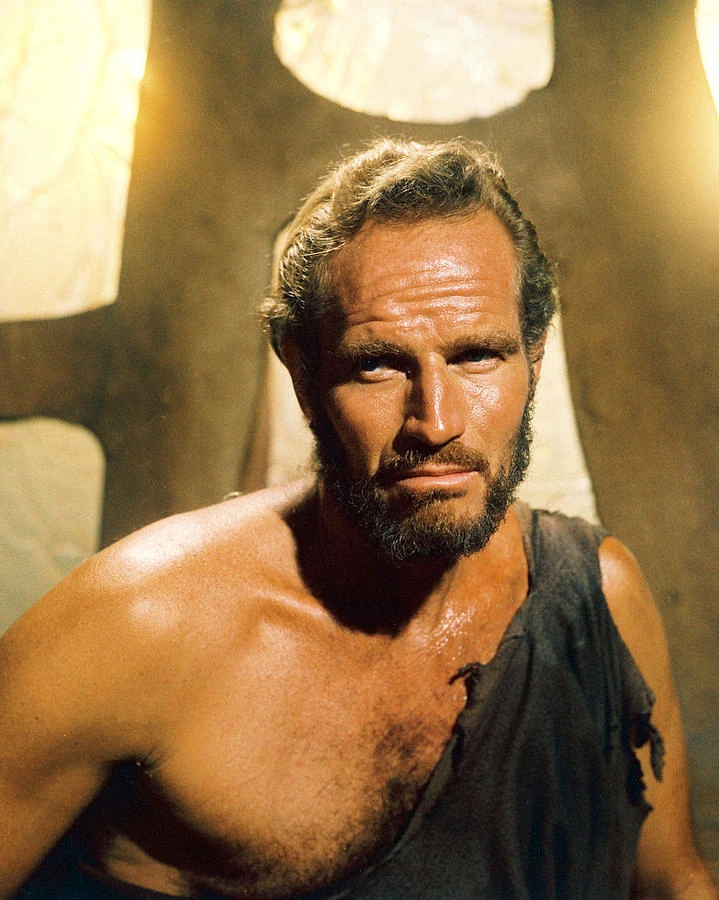





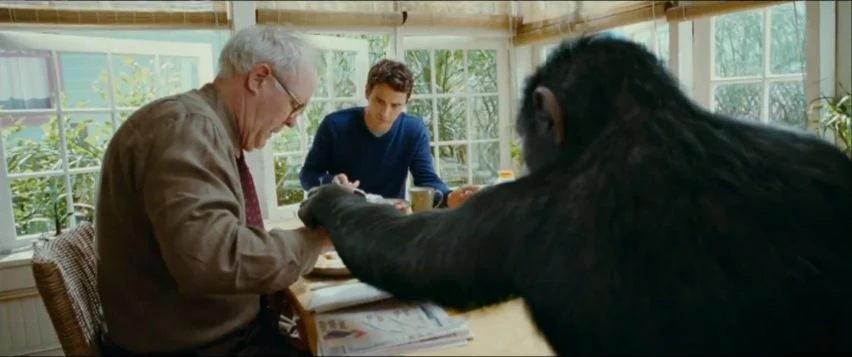





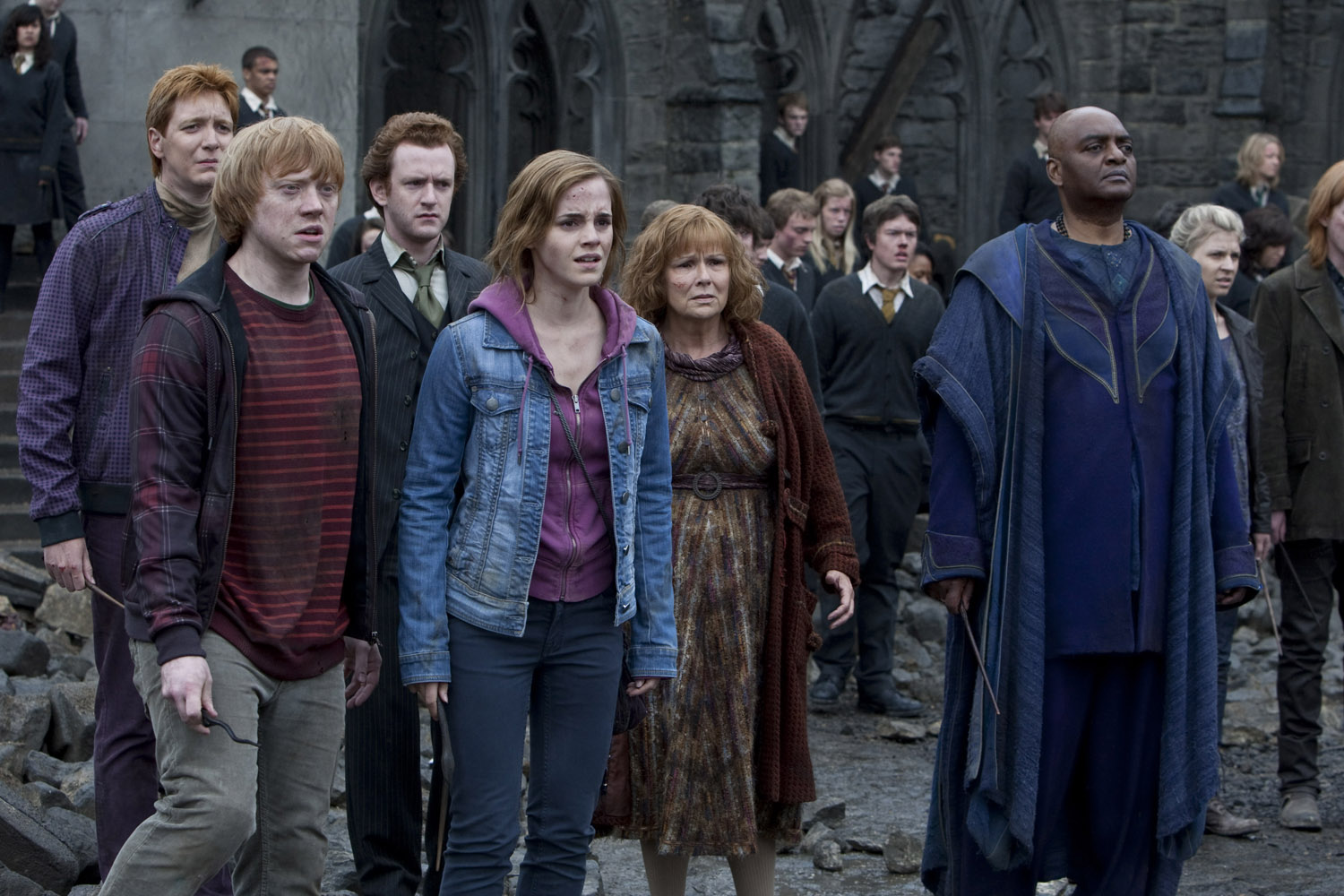
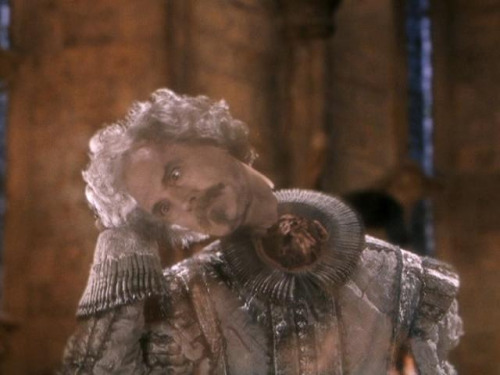



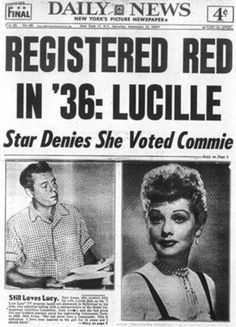

.jpg)




